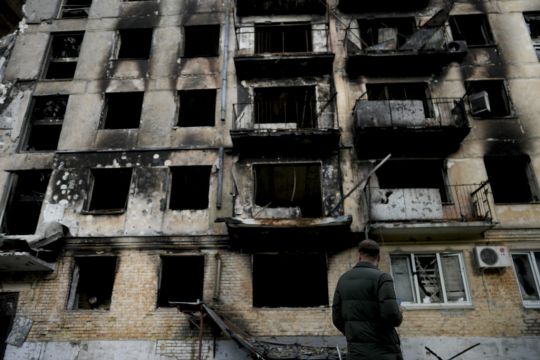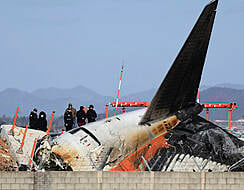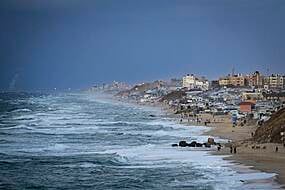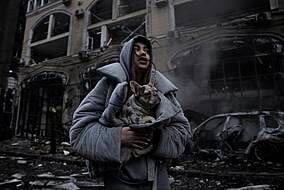Russia-backed separatists claimed they captured a railway hub city in eastern Ukraine as Moscow’s forces pushed to gain more ground on Friday by pounding another Ukrainian-held area where authorities say 1,500 people have died since the start of the war.
With Russia’s offensive in Ukraine’s industrial Donbas region showing incremental progress, Ukrainian officials characterised the battle as grave and renewed their appeals for more sophisticated Western-supplied weaponry.
Without that, Ukraine’s foreign minister warned, Ukrainian forces will not be able to stop Russia’s advance on the east.
Some European leaders sought dialogue with Russian President Vladimir Putin towards ending a war — now in its 93rd day — with global economic repercussions, while Britain’s foreign minister worked to rally the West’s continued support for Ukraine.
“There should be no talk of ceasefires, or appeasing Putin. We need to make sure that Ukraine wins. And that Russia withdraws and that we never see this type of Russian aggression again,” Foreign Secretary Liz Truss said.
Foreign Secretary @TrussLiz speaks at a joint press conference with Foreign Minister @JanLipavsky in Prague:
💬 The Czech Republic knows the dangers of appeasement and compromise in the face of aggression. We need to make sure that Ukraine wins and that Russia withdraws pic.twitter.com/V8mQVJrhn1— Foreign, Commonwealth & Development Office (@FCDOGovUK) May 27, 2022
But in Ukraine’s east, Russia does have the upper hand. The fighting on Friday focused on two key cities: Sievierodonetsk and nearby Lysychansk.
They are the last areas under Ukrainian control in Luhansk, one of two provinces that make up the Donbas and where Moscow-backed separatists have controlled some territory for eight years.
“There are battles on the outskirts of the city. Massive artillery shelling does not stop, day and night,” Sievierodonetsk Mayor Oleksandr Striuk told The Associated Press. “The city is being systematically destroyed – 90% of the buildings in the city are damaged.”
An assault was under way in the city’s north-eastern quarter, where Russian reconnaissance and sabotage groups tried to capture the Mir Hotel and the area around it Friday, Mr Striuk said.
At least 1,500 people have died in Sievierodonetsk because of the war since Russia invaded Ukraine on February 24, he said.
The figure includes people killed by shelling or in fires caused by Russian missile strikes, as well as those who died from shrapnel wounds, untreated diseases, a lack of medicine or while trapped under rubble, according to the mayor.
About 12,000 to 13,000 people remain in the city – down from a pre-war population of about 100,000, he said. Those remaining are huddled in shelters, and largely cut off from the rest of Ukraine.

Volunteers hoped to evacuate about 100 people on Friday from a smaller city just to Sievierodonetsk’s south.
“Bakhmut is a high-risk area right now,” Mark Poppert, an American volunteer working with British charity RefugEase, said. “We’re trying to get as many people out as we can.”
In Donetsk, the other Donbas province, the Russia-backed rebels said on Friday they took over Lyman, a large railway hub north of two more key cities still under Ukrainian control.
“We lost Lyman,” Ukrainian presidential adviser Oleksiy Arestovich acknowledged on Thursday night. However, a Ukrainian Defence Ministry spokesperson reported on Friday that its soldiers countered Russian attempts to push them completely out of the city.
Spoke with my German counterpart @ABaerbock and briefed her on the difficult situation in the Donbas. We need more heavy weapons delivered as soon as possible, especially MLRS, to repel Russian attacks. Also discussed further sanctions on Russia and Ukraine’s EU candidate status.
— Dmytro Kuleba (@DmytroKuleba) May 26, 2022
As Ukraine’s hopes of stopping the Russian advance faded, Ukrainian Foreign Minister Dmytro Kuleba pleaded with Western nations: “We need heavy weapons. The only position where Russia is better than us, it’s the amount of heavy weapons they have. Without artillery, without multiple launch rocket systems, we won’t be able to push them back.”
In his nightly address to the nation, Ukrainian President Volodymyr Zelensky had some harsh words for the European Union, which has not agreed on a sixth round of sanctions that includes an embargo on Russian oil.
Hungary, one of Moscow’s closest allies in the EU, is obstructing the deal.
“Pressure on Russia is literally a matter of saving lives,” Mr Zelensky said. “And every day of delay, weakness, various disputes or proposals to ‘appease’ the aggressor at the expense of the victim is new killed Ukrainians. And new threats to everyone on our continent.”

On Thursday, Russian shelling of Kharkiv, a north-eastern city that has been under assault while Ukrainian forces keep the invading troops out, killed nine people, including a father and his five-month-old baby, the president said.
To the north, neighbouring Belarus announced on Friday that it was sending troops toward the Ukrainian border, raising concerns in Ukraine’s military command. Russia used Belarus as a staging ground before it invaded Ukraine.
Germany’s development minister travelled to Ukraine on Friday to pledge further civilian support and to discuss the country’s rebuilding.
Meanwhile, European leaders have been speaking with Mr Putin about easing the growing global food crisis exacerbated by Kyiv’s inability to ship millions of tons of grain and other agricultural products while under attack.
Italian Premier Mario Draghi talked with Mr Putin on Thursday but reported no breakthrough. “If you are asking me if there are openings for peace, the answer is no,” Mr Draghi told reporters.
Moscow has sought to shift the blame for the food crisis to the West, calling upon its leaders to lift existing sanctions.
Mr Putin told Austrian Chancellor Karl Nehammer on Friday that Ukraine should remove Black Sea mines to allow safe shipping, according to a Kremlin readout of their conversation; Russia and Ukraine have traded blame for the mines near Ukraine’s ports.
Mr Nehammer’s office said the two leaders also discussed a prisoner exchange and that Mr Putin indicated efforts to arrange one would be “intensified”.







